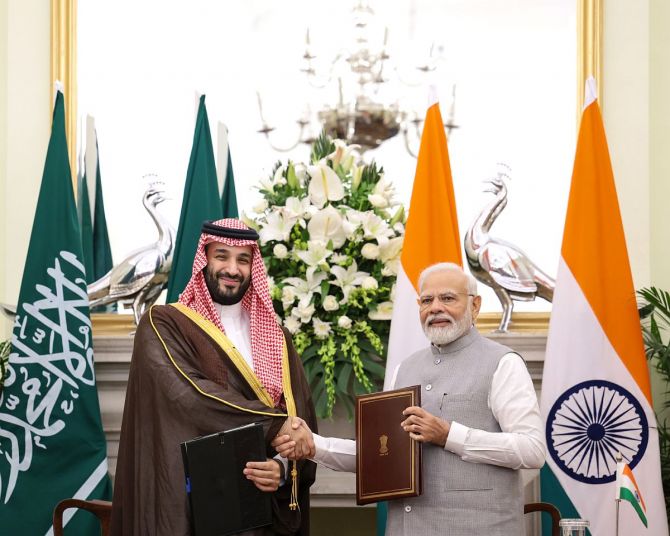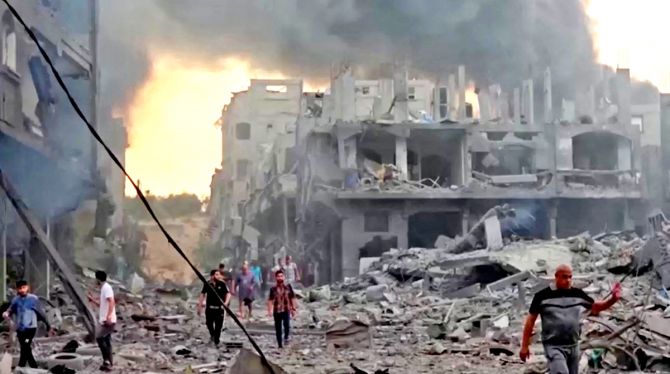Israeli Prime Minister Benjamin Netanyahu termed it the 'largest cooperation project in our history', one that would 'change the face of the Middle East, Israel, and impact the entire world'.

The stretch spanning approximately 428 kilometres between Eilat, connecting Israel to West Asia, and the port of Haifa, managed by Adani Ports in the northern region of Israel, holds significant importance for the ambitious India-Middle East-Europe Economic Corridor (IMEC).
However, ongoing conflicts in the region have raised concerns about the future of this project, at least in the short term, according to industry experts.
Almost all the proposed routes for the corridor pass through the conflict zone before reaching the port of Haifa.
The IMEC project was seen as a breakthrough in the relationship between the kingdom of Saudi Arabia and Israel, two countries without any diplomatic relations.
Lately, both nations have shown signs of softening their stance, with Saudi Arabia recently permitting Israeli airlines to use its airspace.
Media reports indicate that a $27 billion rail link between the northern city of Kiryat Shmona and the Red Sea resort of Eilat in the far south is expected to play a crucial role in the project.
"A section of the project, up to the port of Haifa, will traverse this region. The current geopolitical tensions might have a temporary psychological impact. However, in the long run, it is unlikely to significantly affect the IMEC project," says Subodh Kumar Jain, director of South Asia Gas Enterprise, a consortium of companies planning a $5 billion undersea liquefied natural gas pipeline connecting West Asia to India.
"Countries like Saudi Arabia and the United Arab Emirates are also establishing friendlier ties with Israel," Jain points out.

IMEC comprises an eastern corridor connecting India with West Asia and a northern corridor further connecting West Asia to Europe.
Israeli Prime Minister Benjamin Netanyahu termed it the 'largest cooperation project in our history', one that would 'change the face of the Middle East, Israel, and impact the entire world'.
The initial plan for the corridor involves a shipping route connecting Mumbai and Mundra (Gujarat) with the UAE, followed by a rail network linking the UAE to five ports in the UAE and Saudi Arabia, extending up to the Port of Haifa in Israel.
"This presents India with an opportunity as an emerging major power, and it is also a collective regional opportunity for the public and private sectors in India," says Mohd Jamshed, former member of Railway Board.
"This alternative sea-rail-sea route from India to Europe has the potential to reduce logistics costs by about 40 per cent, cutting transit time compared to the saturated Suez all-sea route," Jamshed adds.
According to Jamshed, the limited missing links in the Saudi Railway network to the port of Haifa can be planned within a realistic time frame.
"Indian public sector undertakings such as Rail India Technical and Economic Service, Ircon International, Container Corporation of India, and RailTel Corporation are well-positioned to commission IMEC in the shortest possible time, along with connected projects like the Gulf Railway network, port of Duqm in Oman to Riyadh, Al-Haditha to Haifa, and other potential feeder rail routes from Damascus and Baghdad to Amman," says Jamshed.
"India could also supply high horsepower locomotives and high axle freight cars specially built for standard gauge."
Feature Presentation: Rajesh Alva/Rediff.com












 © 2025
© 2025